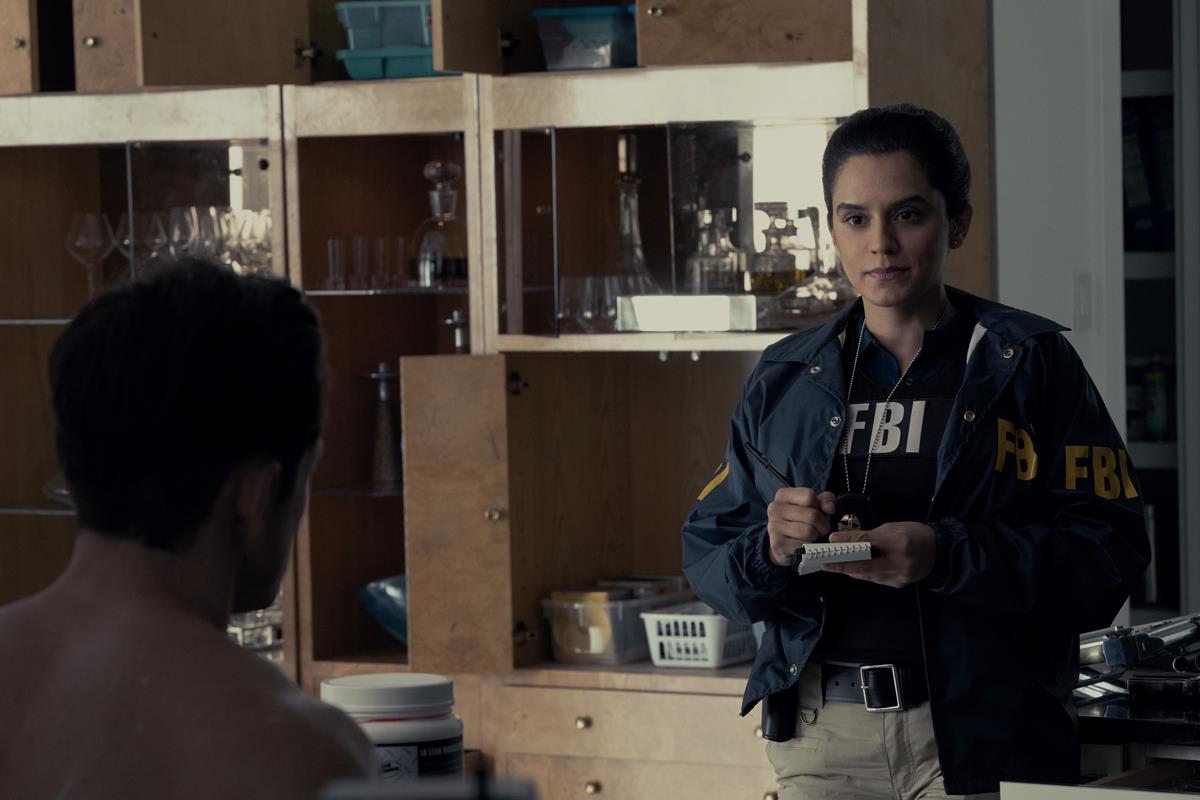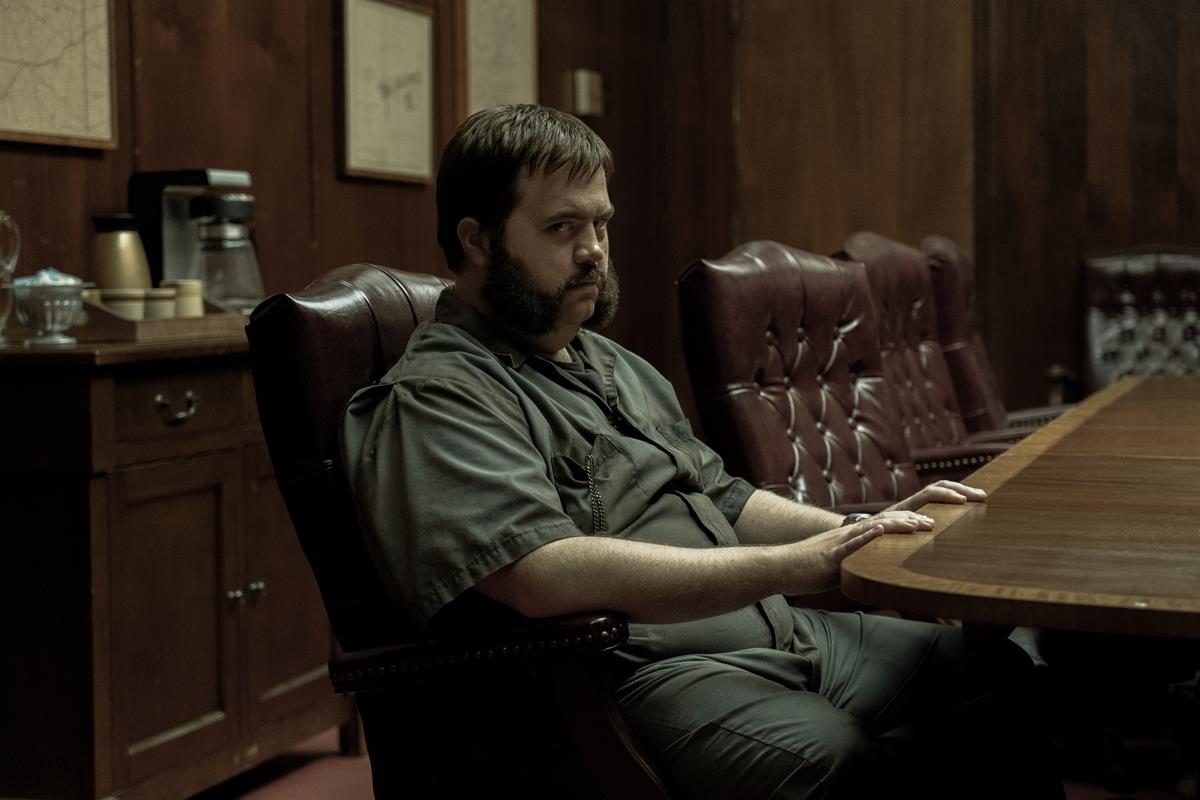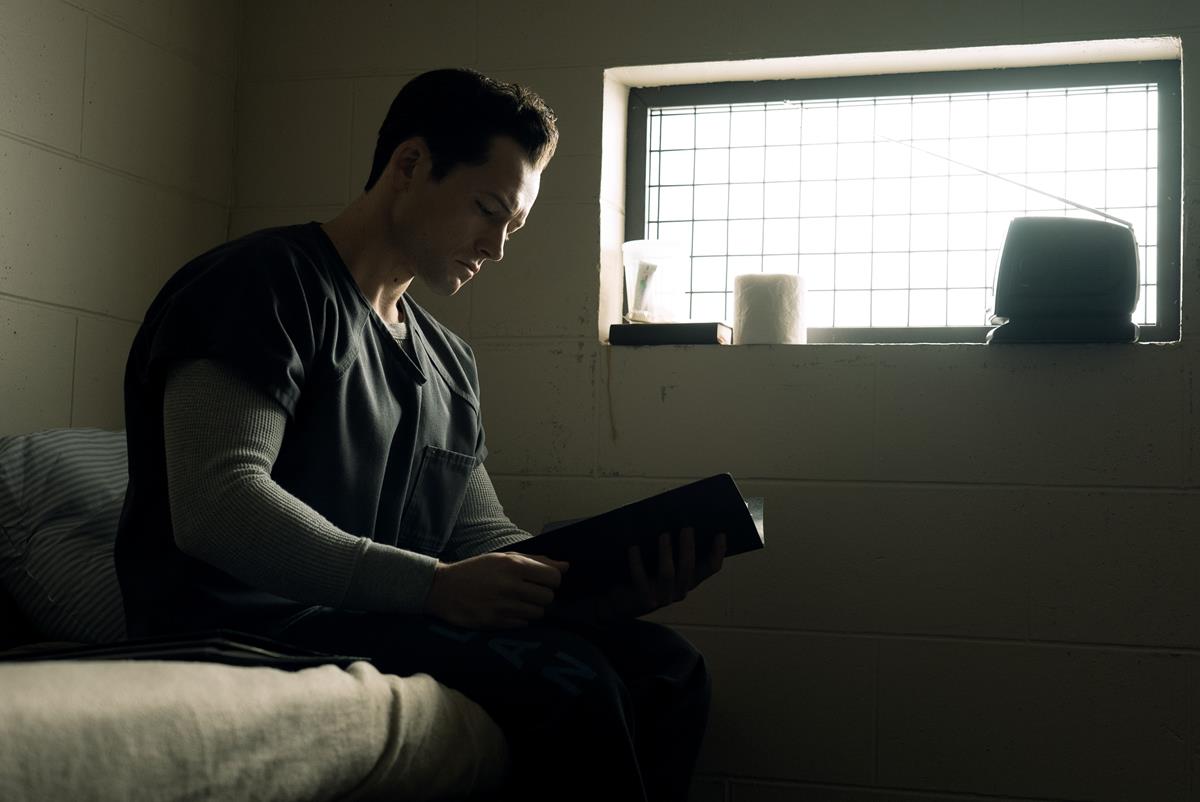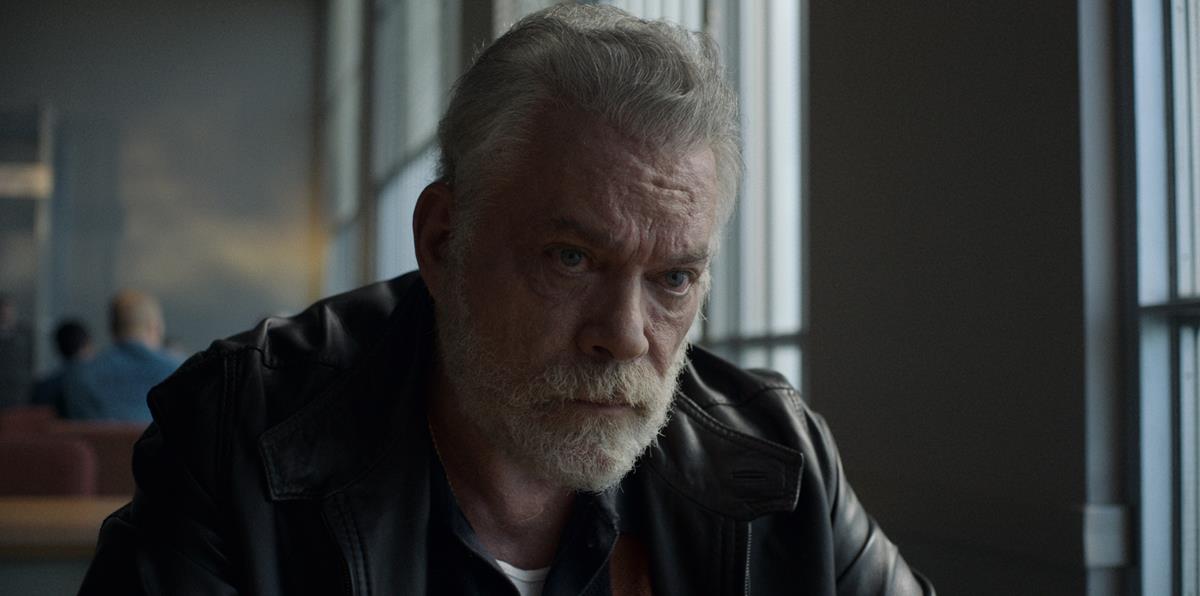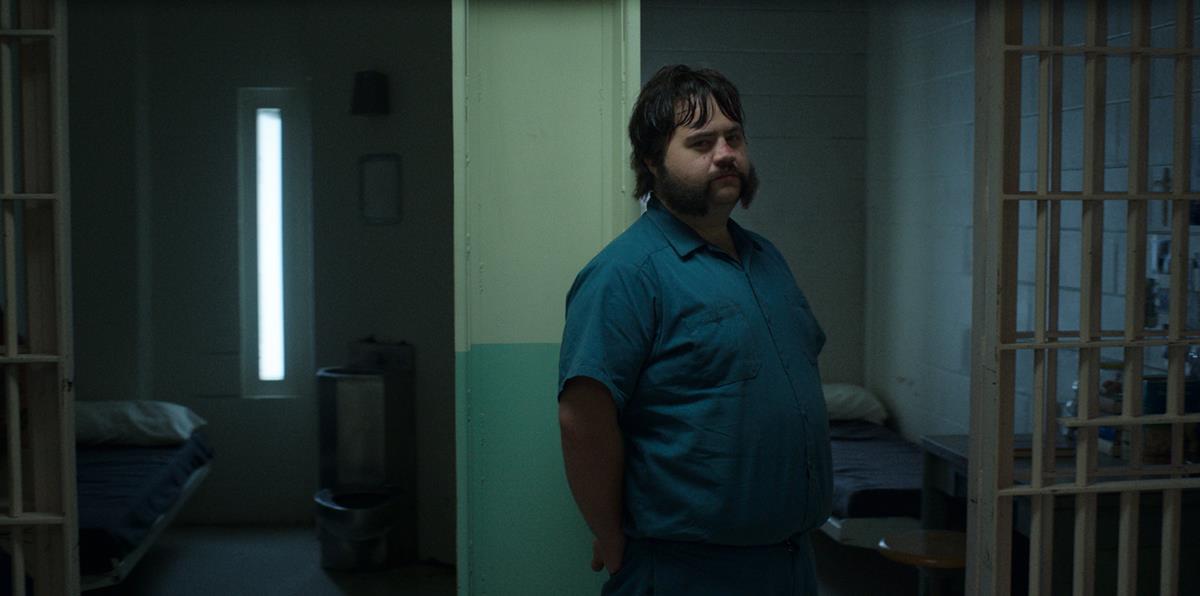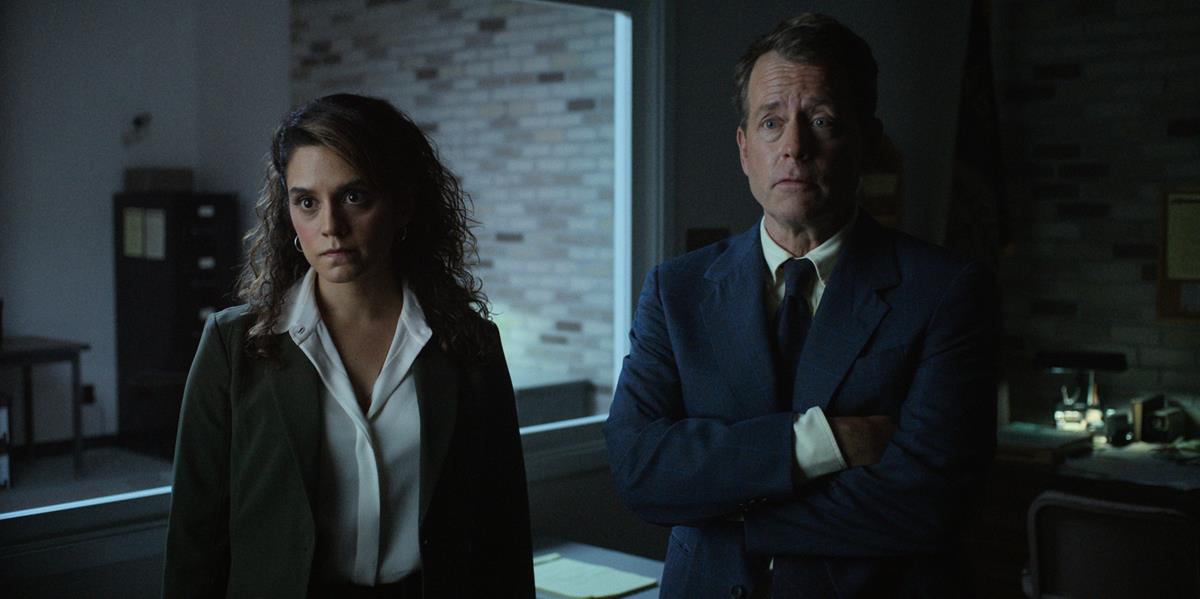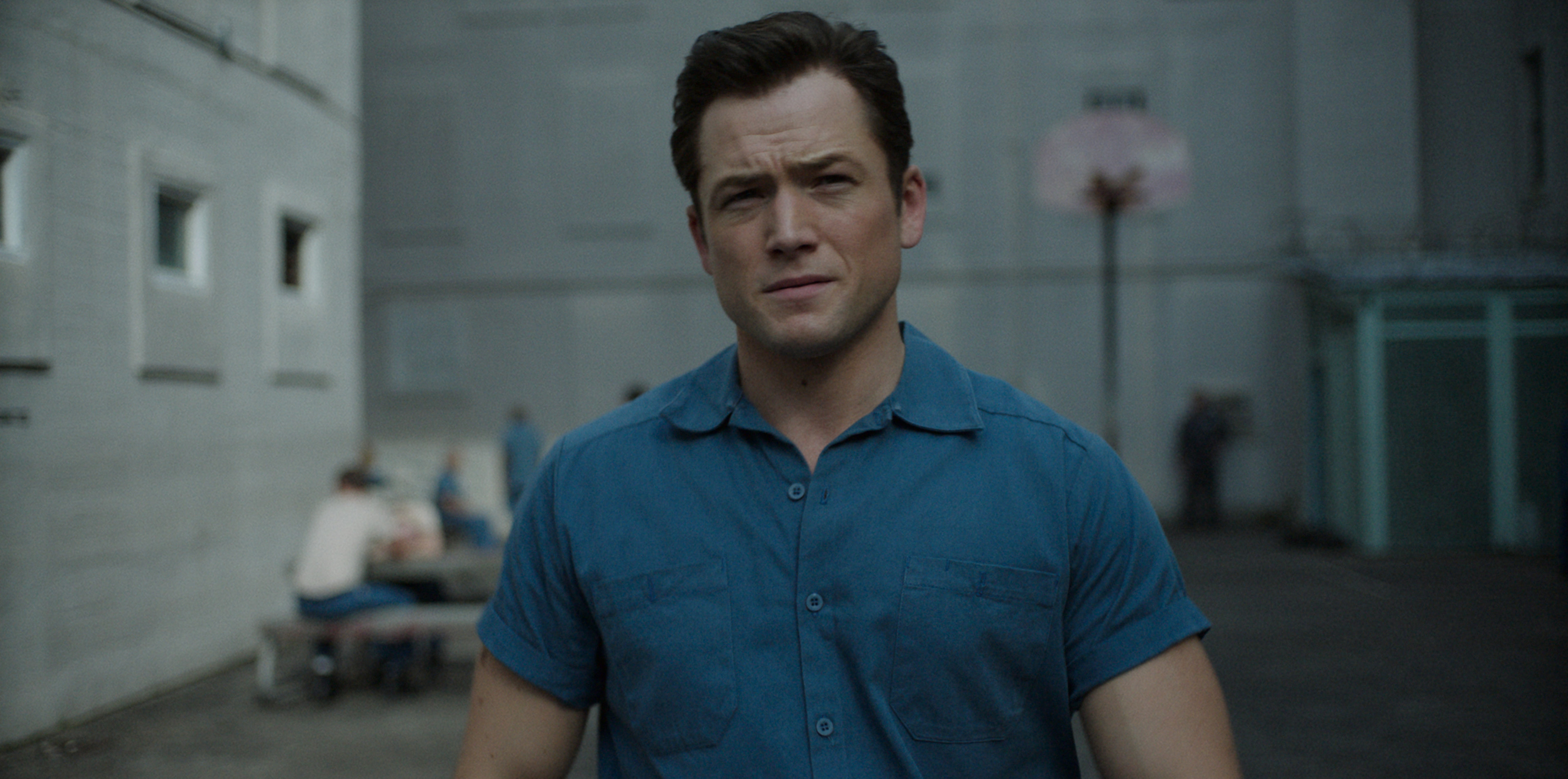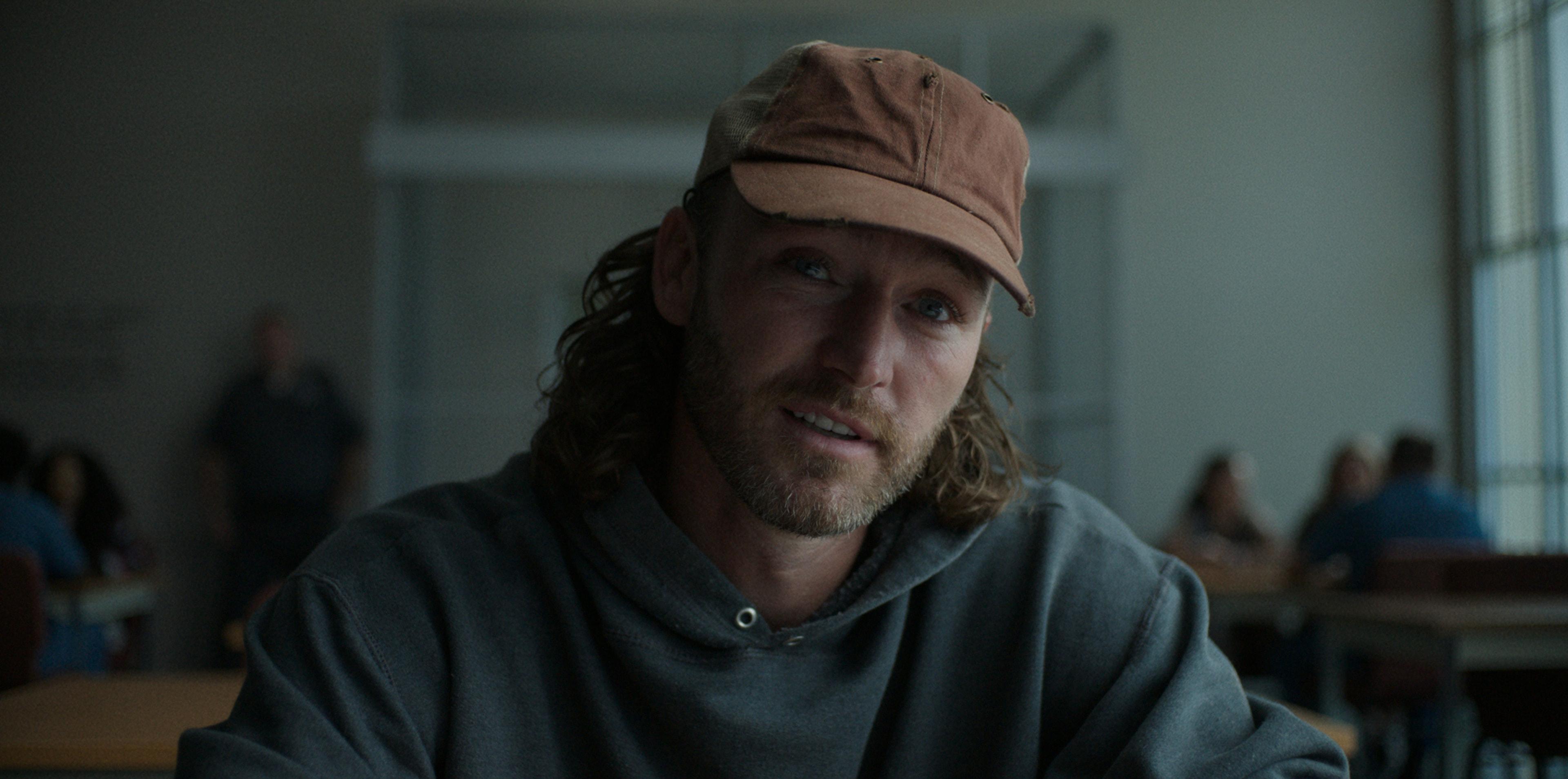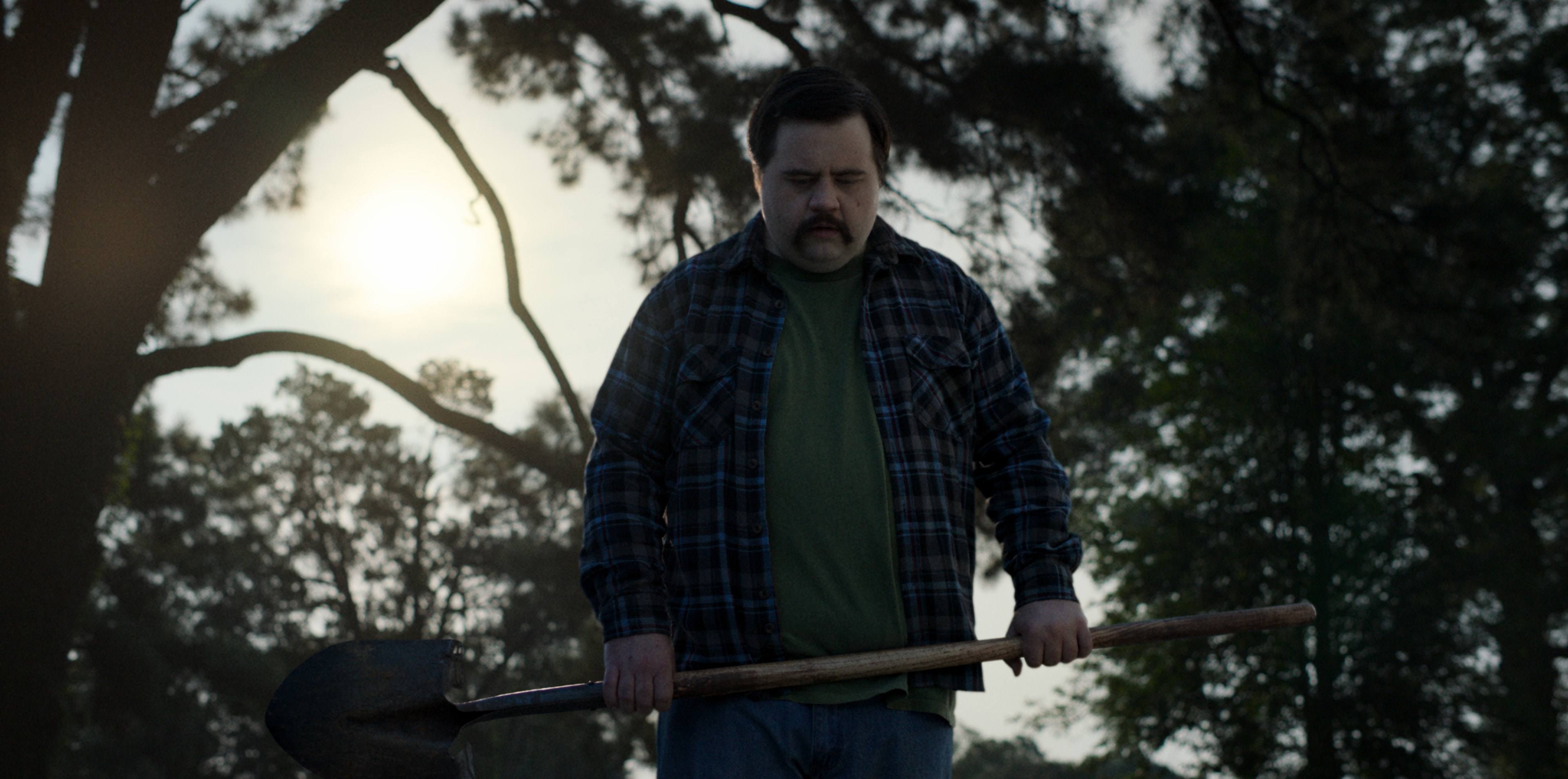Here’s your choice: Serve a 10-year jail sentence, or go free after transferring to a maximum-security prison and getting a potential serial killer to confess. That seed feeds the drama of Black Bird, a true-crime saga adapted by thriller novelist and screenwriter Dennis Lehane.
“The thing I locked in on was the sense of being dropped into a type of hell and having to navigate without a map,” says Lehane in TV Insider.
READ MORE: Dennis Lehane Talks Exploring the Many Gray Areas of Apple TV+’s ‘Black Bird’ (TV Insider)
The AppleTV+ series stars Taron Egerton as charismatic drug dealer Jimmy Keene and Paul Walter Hauser as serial killer Larry Hall, with Keene’s father played by Ray Liotta in his final TV role.
The Boston Globe’s Matthew Gilbert summarizes the choice Keene is forced to make at the beginning of the series: either serve 10 years in a minimum security prison, or “enter a maximum-security prison for the criminally insane, befriend a suspected serial killer, get him to confess where he buried the bodies, and walk free.”
READ MORE: Dennis Lehane bringing ‘Black Bird’ to Apple TV+ (The Boston Globe)
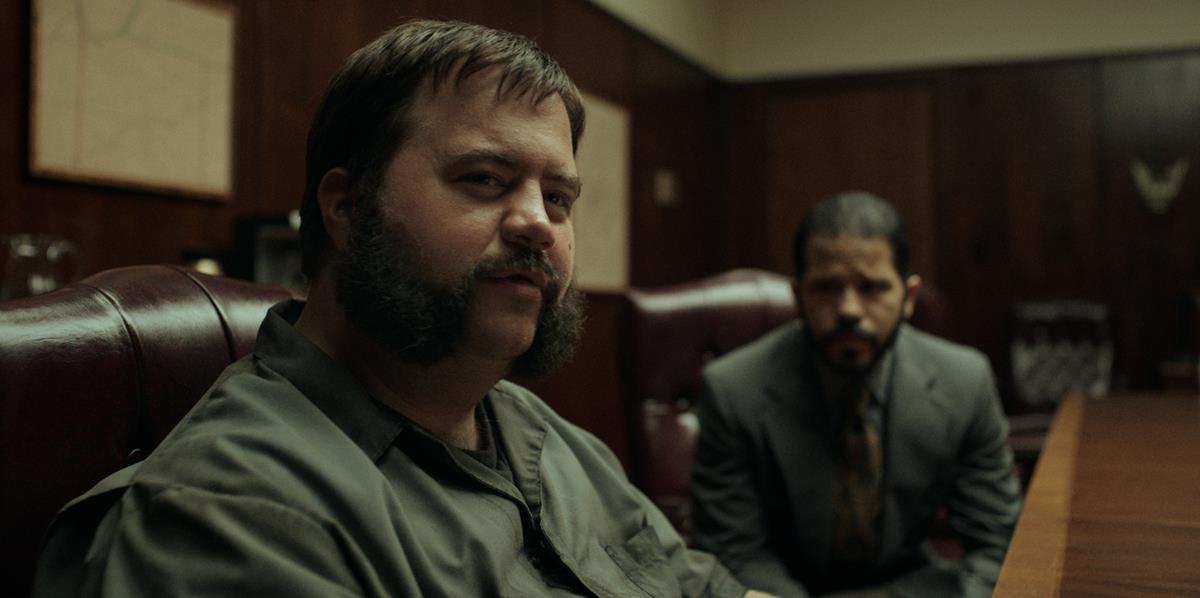
As the story unfolds, many gray areas emerge. Says Lehane, “I don’t think too many people are just straight-out evil.”
The six-episode drama is based on the real James Keene’s 2010 autobiography, In With the Devil: A Fallen Hero, a Serial Killer, and a Dangerous Bargain for Redemption.
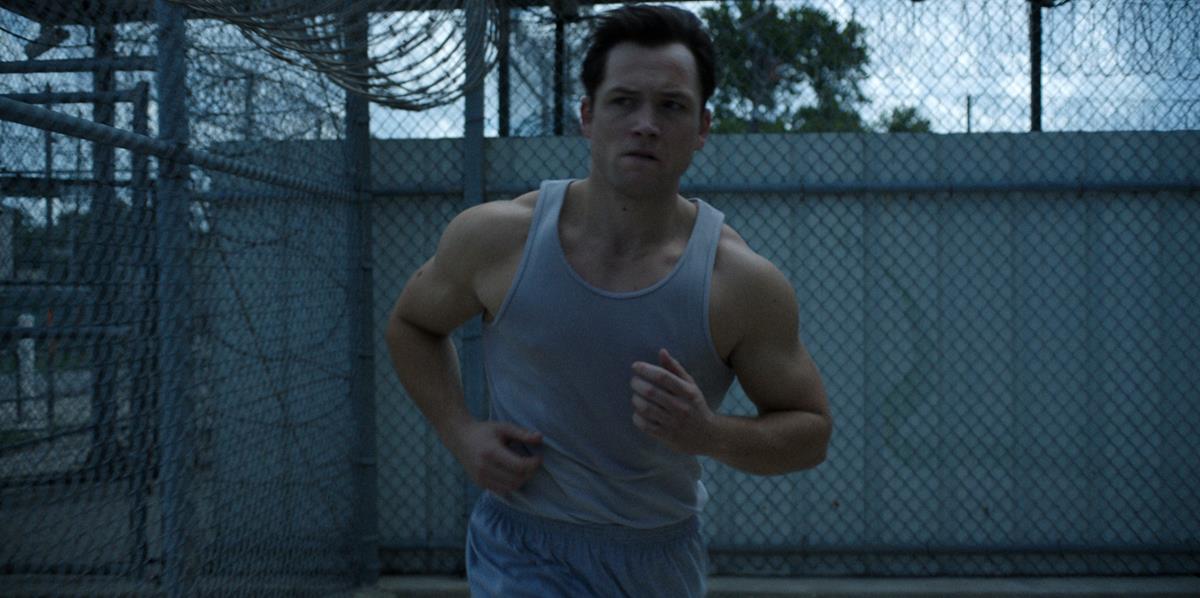
Game Rant’s Raven Brunner spoke with Lehane, who also serves as showrunner of the series. “This might sound strange, but I’ve been looking to tell a story that has a clean mythological line, and this was it,” he said.
“If you look at it, it has all the trappings of a classical hero’s journey: you have this young man, he is sent out by his village to confront an ogre that is threatening members of the village, he heads out into a dark forest and battles the monster, and he comes back a changed man. It’s as old as time.”
READ MORE: Interview: Black Bird Showrunner Dennis Lehane Talks Drama Series, Casting Paul Walter Hauser, Creative Liberties, More (Game Rant)
The Hollywood Reporter’s Daniel Fienberg contends that while the series isn’t necessarily very authentic or convincing on a factual level, “it is, however, thoroughly unsettling and anchored by exceptional performances by Paul Walter Hauser, Taron Egerton and Ray Liotta.”
Fienberg lauds Egerton for doing “an astonishing job of making Jimmy feel like something resembling a person beyond the hagiography… Lehane, along with series directors Michaël R. Roskam, Joe Chappelle and Jim McKay, recognizes that although Jimmy is our eyes and ears, eventually viewers are just going to want to concentrate on the chilling, layered thing that Hauser is doing.”
Hauser’s approach was to present Larry “initially through key external traits like his reedy voice and bushy sideburns.” But then, Feinberg noticed how he starts to dig into not just Larry’s pain, but the pain he caused others. “Larry is scary, but he’s at least as sad and pathetic. The series’ running time and Lehane’s reliable gift with dialogue construction are able to showcase both these sides of him.”
READ MORE: Apple TV+’s ‘Black Bird’: TV Review (The Hollywood Reporter)
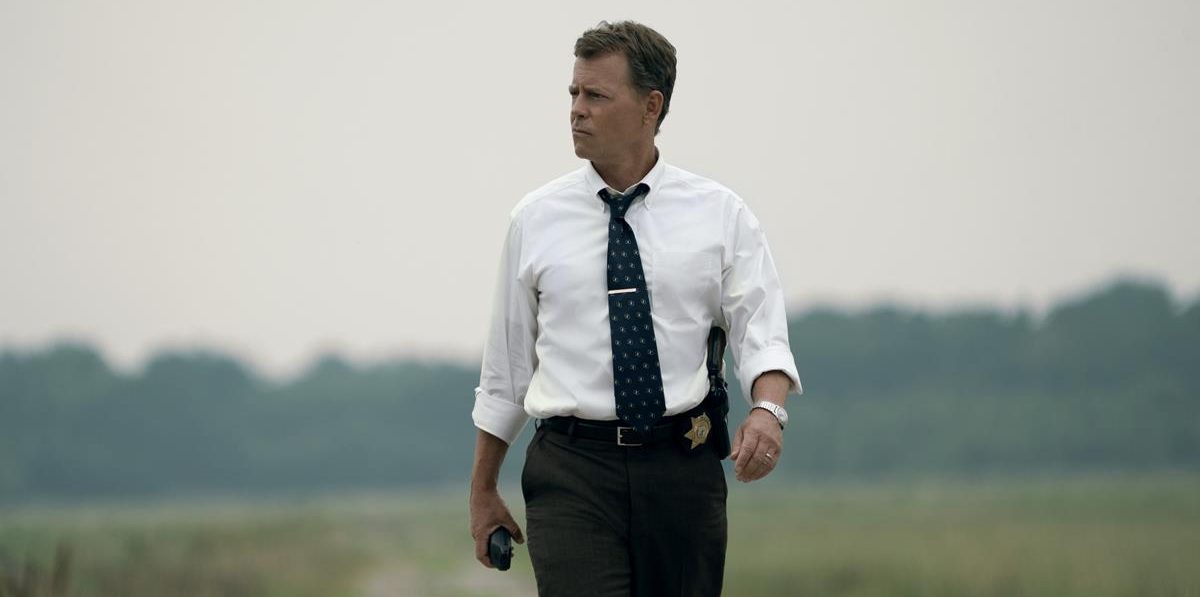
Valerie Ettenhofer at The Playlist points out that while Egerton and Hauser are sure to dominate conversations, Kinnear, Moafi and Liotta deserve praise as well. “The plot is a pressure cooker, but Jimmy has to move with deliberate ease,” she explains. “Everyone around him isn’t quite as restricted, and often, the unexpressed anguish shows up on the faces of the people who have to bear witness to Jimmy and Larry’s realities from outside the prison bars.
“The show weaves so much meaning into each moment that no role feels minor: supporting actors including Robyn Malcolm, Jake McLaughlin, and Laney Stiebing also put in noteworthy work as Jimmy’s step-mom, Larry’s brother, and a young murder victim, respectively.”
READ MORE: ‘Black Bird’ Review: Dennis Lehane’s New Apple TV+ Series Is True Crime in Rare, Fantastic Form (The Playlist)
In the Just Shoot It podcast, Lehane explains that the tone for the show was influenced by Netflix shows Mindhunter and Ozark among others.
“I was really clear with the production designer and with the DP and the directors that that I had a strong visual palette for what I wanted to see. The palette that I wanted for the pastoral scenes was a Days of Heaven Terrence Malick vibe, and I wanted Jimmy’s life to be Michael Mann. I wanted it to be very sleek, very cold. So that the juxtaposition of the two worlds is that they can’t really ultimately come together. And then into this pastoral world comes the [serial] killer.”
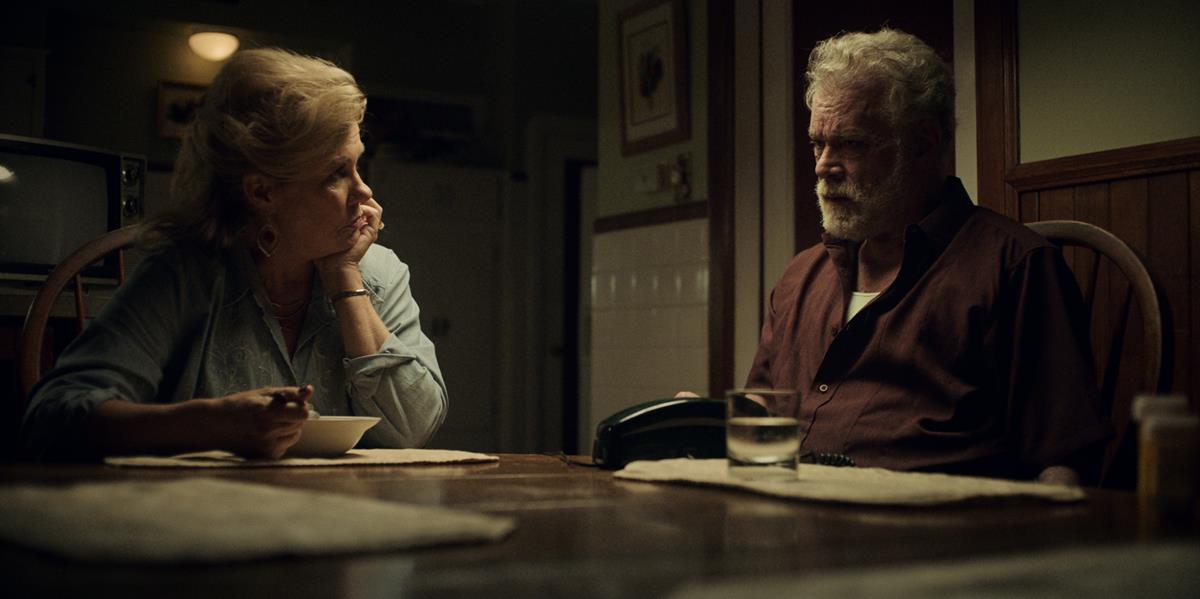
He says he also made a point not to show any of the actual murders on screen, preferring to suggest horror in much the same way that Hitchcock did in Psycho.
The podcast hosts also mention Taryn Egerton, who is also a producer on the show, asking, “Are we ever allowed to cast American actors to play Americans? In America?”
“I’m worried those days are coming,” jokes Lehane. “I feel like with Taryn, it just goes back to you know, the Brits, man. Gotta love working with the Brits. You just get so much range and you get a lot less BS. You know, they’re not like running around going out and shooting dogs at night. So they can authentically play a psycho. They’re trained, classically trained actors.”
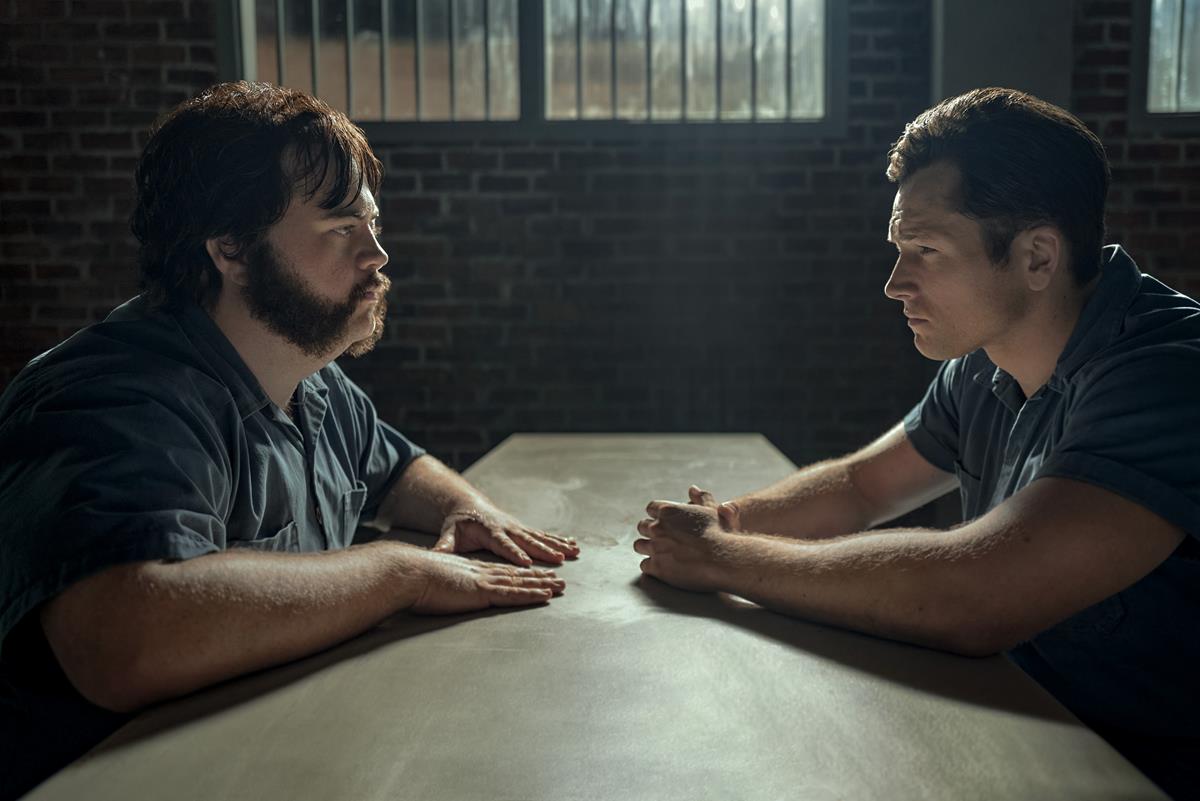
Lehane explained the reasons why he was drawn to the project on an episode of the Bingeworthy podcast from The Playlist: “If you look at this story, there are three to four major male parts. And, of them, for me, you have every worthwhile picture of masculinity.” he said.
“The one that I would want to be is Miller, played by Greg Kinnear. He’s methodical, he’s rational, and he doesn’t let a narrative take hold until he’s followed the facts to their natural & rational end. And then you have this loving bear of a disaster in Ray Liotta playing Big Jim. He’s loving, he’s a screw-up, but he’d run into a fire for his son without a look back. And then you have, at the far end, the worst example of toxic masculinity — a serial killer who preys on women he doesn’t know. Where’s Jimmy in all of this? Jimmy’s our every man. He’s us. He’s our guide in. So, that was the story I wanted to tell.”
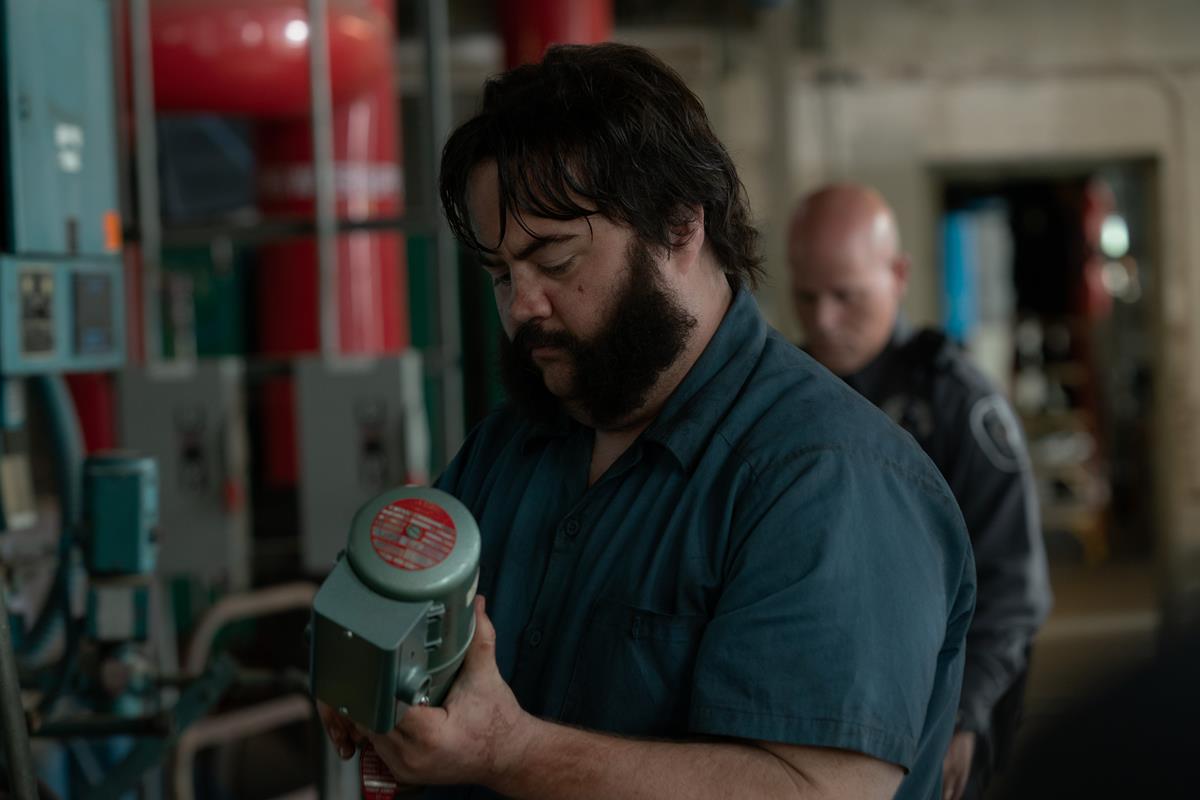
Speaking to NPR, Lehane recounted that he was initially very resistant to taking on the project. “I was just adamant,” he said. “I didn’t want to do it. I was so sick of darkness. I’d just done three Stephen King projects. And then I was like, prison? I like prison. And it’s all dudes. I don’t like things with all dudes.”
But then he conceived of a new approach: What if a central theme of the show was the destructive nature of the male gaze? “I started to realize, oh, my God, this is a really interesting story about where all men fall on the misogyny line. If I can make this show about sort of weaponization of the male gaze, then I’ll do it.”
“Right off the bat, I saw the story in very mythological terms,” Lehane told Jollie Lash at The Wrap. “I was just like, ‘This is the story we’ve been telling — humans have been telling — since the dawn of time.’ ”
Partnering with Egerton, the two had a firm sense of the material and the aesthetic they wanted to create. “I wanted the show to be very Greek, ancient Greek in the sense that most of the violence happens off screen… and simultaneously, I wanted it to be extremely disturbing,” he recounts, admitting that he does want the best of both worlds, to have his cake and eat it, too.
That’s where the dialogue starts to really play an important role.
READ MORE: ‘Black Bird’ Showrunner Dennis Lehane on How Greek Mythology Inspired the Storytelling in the Apple TV+ Series (The Wrap)
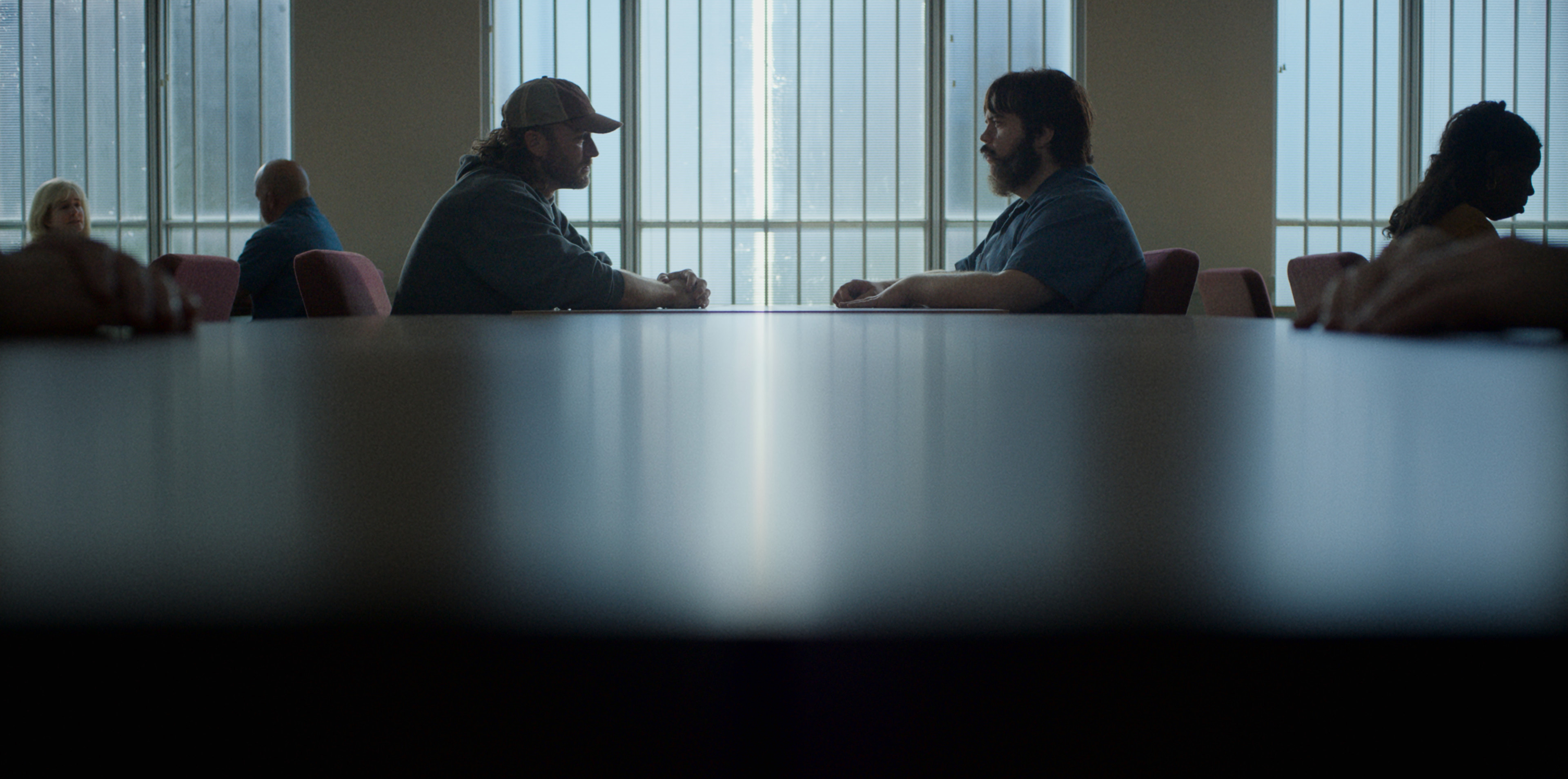
Lehane was a writer on The Wire, and earns most praise for his dialogue. Lucy Mangan, TV critic at The Guardian, judges “this allusive, switchbacking dialogue Lehane’s finest work yet.”
READ MORE: Black Bird review – Ray Liotta is heartbreaking in this posthumous prison drama (The Guardian)
IndieWire’s Ben Travers asked Lehane how he wrote the dialogue between Jimmy and Larry, and how often he was able to source out what was said.
“Well, Jimmy’s description of his dance with Larry in the book is sometimes more paraphrased, so it’s hard to say what the specifics are,” Lehane said, acknowledging that some of the conversations come right from the book, while others demanded that he “put on my weird transportation hat and teleport myself into Larry’s head.”
Lehane knew he “had to reconstruct the dance between these two guys. And once I said, ‘Well, I’m going into the buzzsaw that is misogyny,’ then I at least had a thematic template.
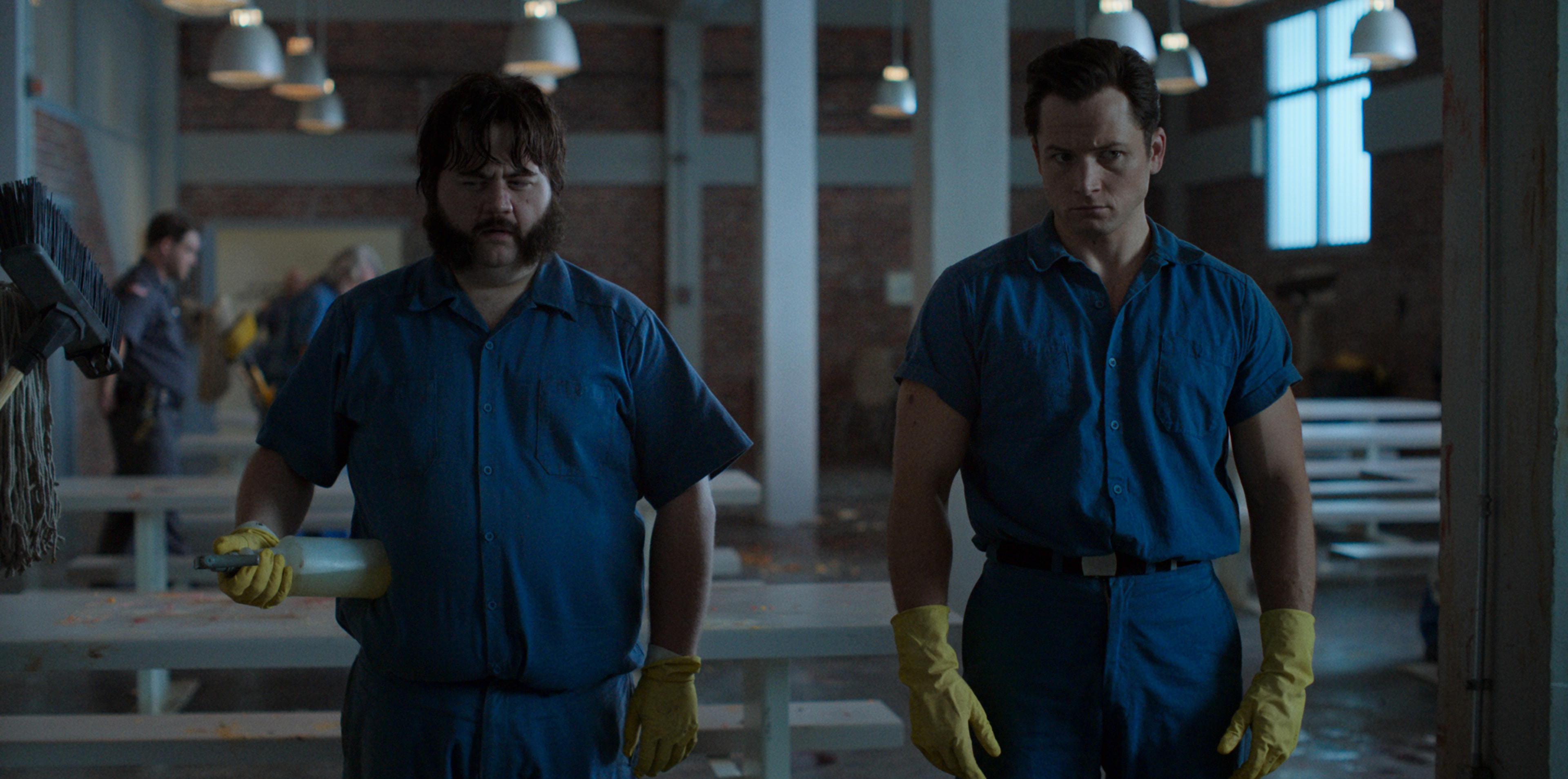
“I started with Larry. Larry would say these bizarre things. And Jimmy would be, ‘OK, I’m just going to try to keep up here in this conversation.’ Then as time goes on, Jimmy has to start instigating the conversation, so he has to start telling stories about himself. Some of them are true, some of them are lies. But once the toxicity of [Larry’s] loneliness meets up against the toxicity of his hatred for women, once those two come together, maybe he’ll confess. And that’s the key.”
READ MORE: Dennis Lehane on ‘Black Bird,’ How to Write a Realistic Serial Killer, and Being Done with Movies (IndieWire)
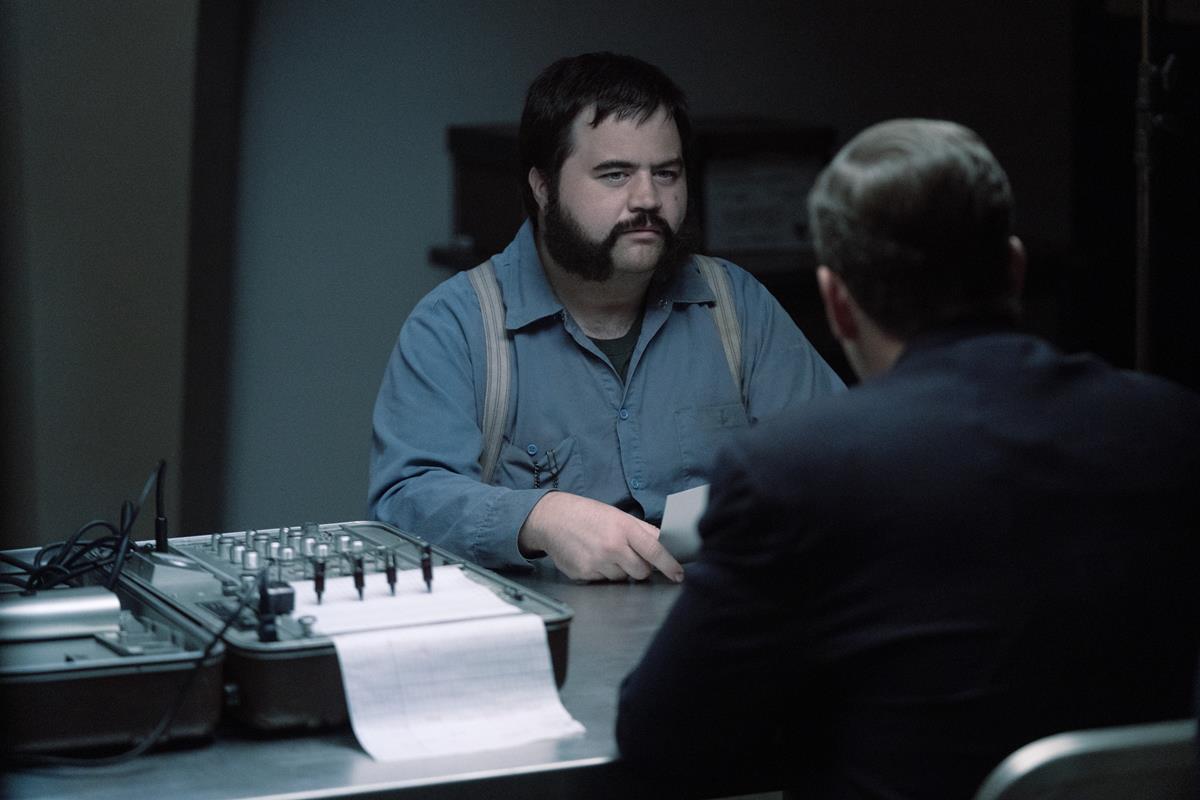
In his separate review for IndieWire, Travers calls Black Bird “a stealthy piece of storytelling that works quite well as a tense, cat-and-mouse thriller.”
The continuing investigation into Larry’s murders “creates a familiar rhythm that the show can be a little too eager to lean on, but Lehane still subverts the traditional TV detective genre by illustrating law & order’s systemic limits.”
READ MORE: ‘Black Bird’ Review: Apple’s Chilling Prison Drama Explores Pervasive Truths About Misogyny (Indie Wire)
READ MORE: Apple TV+’s ‘Black Bird’: TV Review (The Hollywood Reporter)
Next, Watch This
Want more? Showrunner Dennis Lehane and actors Taron Egerton and Paul Walter Hauser talk to The Inside Reel about approach, truth, masks and expectation in regards to their new dramatic Apple TV+ series Black Bird:
Or watch Black Bird creator and showrunner Dennis Lehane as he talks to Screen Rant’s Tatiana Hullender about the process of adapting a real-life crime story for Apple TV+, and why working with Taron Egerton was such a joy:


